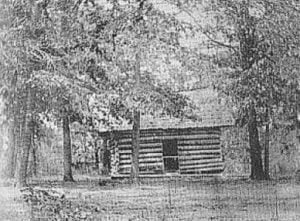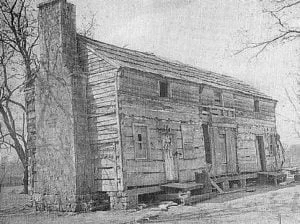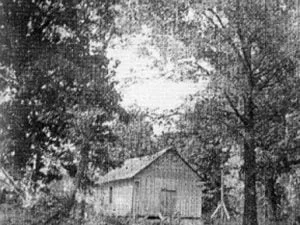The missionaries found the precepts of the Choctaw’s to be moral; and also that they respected old age, and kept fresh in memory the wise councils of their; fathers, whose lessons of wisdom the experience of the past, taught their youthful minds to look upward, and whose teachings they did not forget in their mature years.
Their tenderness to and watchful care of the aged and infirm was truly remarkable; they looked upon home and regarded their country as sacred institutions, and in the defense of which they freely staked their lives; they also inculcated a high regard for parents, and were always courteous by instinct as well as by teaching; they held in high veneration the names of the wise, the good, and the brave of their ancestors, and from their sentiment toward the dead grew sweet flowers in the heart. They believed that integrity alone was worthy of station, and that promotion should rest on capacity and faithfulness; they also had swift and sure methods of dealing with the incorrigible, official or private; nor were they impatient of the slow processes of the years but knew how to wait in faith and contentment; and if they were not as progressive, as our opinion demands in its rush for gain and pompous show, they had at least conquered the secret of National and individual steadfastness. Today we are a prodigal and wasteful people; the Indians are frugal and economical.

In 14 months after the location of the mission at Elliot by the indefatigable perseverance of Mr. Kingsbury, a sufficiency of houses were erected, a school was opened, and that then young pioneer of the Cross proclaimed the Gospel of the Son of God, where it never before had been proclaimed; and at the time the Choctaw’s were so cruelly driven from their ancient domains to make room for our cruel and unchristian venality called “Progress,” the Elliot and Mayhew missions together with the eleven other established in various parts of the Choctaw Nation, were in a flourishing condition; and this earliest effort to evangelize this worthy people, was highly encouraging from the readiness, yea, absolute eagerness, on their part to receive instruction. A considerable and suitable literature both educational and religious was soon prepared; a school system was also founded through which many young Choctaws, both male and female, received the elements of a good education. Many of the useful arts of civilized life were introduced; and the mission Aries had gathered many Christian congregations of whom not a few had received the good seed in an honest heart. And of those noble, self-sacrificing missionaries, it may truly be said, “Their works do follow them;” and today the names Kingsbury, Byington, Williams, Cushman, Polly, Hotchkins, Hawes, Bardwell and Smith, are still held in grateful remembrance by the Choctaws, as the names of some of those who were their true, their noblest and best earthly friends, to which the following will truthfully attest.
In his first annual report of the Elliot Mission, bearing date October 28th, 1819, Mr. Kingsbury says: (copy from the original MS.) “The first tree was felled on the 13th of August, 1818. Since we arrived, (himself and Mr. and Mrs. Williams) we have been joined by the following persons;
Mr. Peter Kanaise, Mr. John Kanaise and wife, carpenter, Mr. Moses Jewell and wife, Mr. N. Jersey, Mr. N. York, carpenter and millwright, Mr. A. V. Williams, laborer, Mrs. Kingsbury, Miss Chase, Mr. Isaac Fisk, blacksmith, Mr. W. W. Pride, physician.
All these came out to labor gratuitously for the benefit of the Choctaws.
It would be trespassing unnecessarily on the time of the secretary to detail the principal circumstances and difficulties, which have attended the progress of our labors. They have been similar to what must always attend such enterprises in an uncivilized country far removed from those places where the necessaries, comforts, and conveniences of life can be obtained.
Since our arrival, we have been principally occupied in erecting buildings. This devolved upon us much labor and greatly retarded our other business, but by the blessing of a kind Providence, we have been prospered in our work, much beyond our expectations.
Within about fourteen months there have been erected at Elliott seven commodious cabins, which are occupied as dwelling houses.
A dining room and kitchen contiguous, (54 x 20) with hewed logs and a piazza on each side.
A schoolhouse 36ft x 34 hewed logs; and finished on the Lancastrian plan.
A millhouse 34 x 30ft, and also a lumber house and granary, each 18 x 20ft.
A blacksmith shop, stable, and three outhouses, all of which are nearly completed.
On the plantation between 30 and 40 acres have been cleared and fenced; and between 20 and 30 acres have been cultivated, which have produced a considerable quantity of corn, potatoes, beans, peas, etc.
Besides the above, considerable time has been spent in cutting roads in different directions, and constructing several small bridges, which were necessary for transporting with a wagon.
The stock at present belonging to the mission consists of 7 horses, 10 steers, 75 cows, 75 calves and young cattle, and about 30 swine. Of the above, 54 cows and calves, and 6 steers and young cattle have been presented by the Choctaws for the benefit of the school.
“There is no private property attached to the mission. All is sacredly devoted to the various purposes of instructing the Choctaws.
“Urged by the importunity of the natives, the school was commenced under many disadvantages in April last, with ten pupils. As accommodations and means of support have increased the school has been enlarged, and there are fifty-four students who attend regularly males and females. All these board in our family. They are of different ages from 6 to 20, and could not speak our language when they came. More pupils are expected to join the school shortly. In addition to the common rudiments of education, the boys are acquiring a practical knowledge of agriculture in its various branches, and the girls, while out of school, are employed under the direction of the female missionaries in different departments of domestic labor. We have also a full-blooded Choctaw lad learning the blacksmith trade; and another, now in school, wishes to engage in the same employment, so soon as there is opportunity. All the children are placed entirely under our control, and the most entire satisfaction is expressed as to the manner they are treated.
“The school is taught on the Lancastrian plan, and the progress of the children has exceeded our most sanguine expectations. Thirty-one began the A. B. C s. Several of these can now read the Testament, and others in easy reading lessons. Most of them have also made considerable progress in writing.
“There have been instances of lads 14 to 16 years old, entirely ignorant of our language, who have perfectly learned the alphabet in three days, and on the fourth day could read and pronounce the abs. We have never seen the same number of children in any school, who appeared more promising. Since they commenced, their attention has been constant. No one has left the school, or manifested a wish to leave it.
“Want of accommodations, but more particularly want of funds, has obliged us to refuse many children who wish to enter the school. If adequate means can be obtained, we design to increase the number to 80 or 100. It is our intention to embrace in their education, that practical industry, and that literary, moral and religious instruction, which may qualify them for useful members of society; and for the exercise of those moral principles, and that genuine piety, which form the basis of true happiness.
“The expenditures of the mission, including the outfit and traveling expenses of the missionaries, and exclusive of their services (which have all been gratuitous) have been more than $9000: About $2000, of this has been on account of buildings. It has been our constant endeavor to impress on the people of this nation the advantages of instruction, and the propriety of their contributing towards the education of their own children; and by commencing on a labored and extensive scale for their improvement we have drawn forth a spirit of liberality as unexpected as it is encouraging.
“At a council in August, which by invitation I attended, the natives subscribed ninety-five cows and calves, and more than $1300 in cash for the, benefit of the school. At a lower town district, in September, they unanimously voted to appropriate $2,000 (their proportion of the money due from the United States for the last purchase of land) to the sup port of a school in that district. It has been proposed in this district to make a similar appropriation for the benefit of this school.
“These measures disclose the disposition of the Nation and evince that under the influence and direction of the Executive a fund might be established, which eventually would be adequate to the instruction of the Nation, We feel a confidence that in future treaties with the Nation, this subject will, without any suggestion of ours, receive that attention which its consideration demands.”
“To bring this people,” continues that true Christian, “within the pale of civilization and Christianity is a great work. The instruction of the rising generation is unquestionably the most direct way to advance. Nothing now wants to put the great mass of children in this Nation, in a course of instruction but efficient means.

It may be proper to observe that the Chickasaws are anxious to have similar institutions in their Nation; and two more are earnestly desired and much needed by the Choctaws. For the support of one of them, two thousand dollars for 17 years annually ($34,000) have already been appropriated by the Choctaws. It is the intention of the American Board to commence one or more of the establishments as soon as they can command the means. It is therefore desirable that the one already commenced here should be completed without delay and placed on a permanent foundation.
Before closing this report, I beg leave to remark on two points relative to the improvement of the Choctaws.
First: We think the introduction of a few respectable mechanics of good moral character, would be of great ad vantage in civilizing and introducing industry among them. We have a blacksmith of this description, who came out at the expense of the American Board, and the profits of his work are devoted to the support of this establishment. Many of the mechanics found in the Indian countries are of little advantage in any respect; and the conduct of some is an out rage on barbarism itself.
Second. “Could the missionaries be relieved from the labor of erecting the buildings, it would enable them much sooner to direct their attention to the improvement of a plantation and other necessary preparations for commencing the school.
“With sentiments of sincere respect, I am, dear sir, your obedient and very humble servant,
Cyrus Kingsbury.

From a letter (now before me) written to the then young missionary, Rev. Cyrus Kingsbury, bearing date, October, 2nd, 1819, I take the following extract: “In a situation like yours, it must be an unspeakable comfort to know that you have the prayers of God’s people. Many are daily supplicating the Throne of Grace for you, and the object in which you are engaged; but I presume you can hardly realize the extent of the interest which is awakened for our missions among the Southern Indians. The eyes of all our churches are turned toward them with the earnest expectation, which is the offspring of faith and prayer. The Indian character in the estimation of even those who have hitherto deemed them too savage to be civilized; and those who acknowledged the excellency of many of the native traits of their character, but were faithless as to the practicability of making them good citizens, are now convinced by the experiments made at Brainard, (among the Cherokees) that the Indians can be educated, become good citizens and devout Christians. Another evidence that had the whites exercised the same credulity in giving heed to the voice of truth that so long and loudly appealed to them in behalf of the Indian race, as they were credulous to the voice of falsehood, the unfortunate Indians would not have so suffered at the hands of ignorance. But continues the writer:
“Truly, you have seen more to rejoice your heart than is witnessed by one in ten of our New England ministers. You have witnessed the Christian devotion of characters once de graded. You have witnessed the wilderness and the solitary, place; in one year became glad before you, and the desert blossom as the rose. After such experience of the smiles of heaven do not faint or become discouraged. God’s promises are established in truth, and they are all yours. Blessed promises! Thus far the Lord has favored you more than any Indian missionary for sixty or seventy years past. The public is waking up with wonderful rapidity to the wants of the Indians. You may be distressed and perplexed for a season, but it will not last always. The Lord will come and will not tarry.”
But it does not fall within the present plan of this work to enter fully into the history, in all its particulars, of those worthy and interesting missions of seventy years ago among the Choctaws, to them the dawn of hope; the return of spring after a long and dreary winter, but only to present certain aspects and features of them, which shall exhibit the hand of God as engaged to renovate and bless a long oppressed Nation, and preparing for it a gracious visitation. Shortly after the necessary houses for dwellings, school and church purposes, had been erected and all things had settled down to systematic business, and the missionaries to give their whole attention to their ministerial labors, there was a moving of the Jung stagnant waters, a presentment of coming: change; and soon a mental activity that presaged emancipation of the Choctaws from the long-, dark night of spiritual gloom that had brooded over their minds during ages unknown.
For the first few years the good and glorious work of reform went on for the most part quietly though steadily. Then there was manifested a greater spirit of inquiry, not only about the truth as a matter of speculation, but after salvation through the Lord Jesus Christ. It was truly affecting to see the deep and unaffected interest manifested by those unlettered warriors, as they listened for the first time to the wonderful story of the Cross a theme to them incomprehensible and almost beyond human belief. That a friend might peradventure die for a friend was to them a possible thing; but for a father to give his only son to die for the benefit of his enemies, and that son also be willing to accept the ordeal of dying the most excruciating death that their mutual enemies might be benefited thereby, seemed too incredible for belief, and filled them with wondering astonishment. Yet hundreds of them yielded to the regenerating influences and power of the Divine Spirit years before they were driven from their ancient homes to seek others in a distant wilderness that the progress of the white man in his strife for gain might not be impeded by their presence, and lived the exemplary lives of the true Christian, and died the death of the righteous in bright hopes of a blissful immortality.
Discover more from Access Genealogy
Subscribe to get the latest posts sent to your email.
